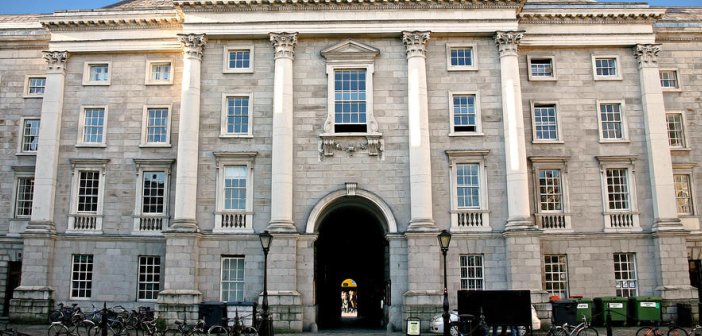Learn to COVID | What Will Be The New Normal For Third-Level Education?
Now is a time for lecturers to reflect
“Nobody wants to be here and nobody wants to leave.” So claims the Old Man in The Road, Cormac McCarthy’s 2006 post-apocalyptic novel. Ireland in the time of COVID-19 has not yet reached the grey, decaying depths of the world that the Old Man inhabits, but his words still hold relevance for those of us teaching in third-level education. Looking across the newly-virtualised academic landscape, it is clear that many lecturers do not want to be here. But nobody wants to leave. This is partly because we want learning to continue, to feel like we are doing our bit to contribute in the midst of a global health pandemic, partly because we have rigid academic calendars to accommodate, partly because we want to cling to some sense of normalcy.
Good teachers continually refine their practice, but it can be difficult finding time to reflect on course content and teaching materials alongside so many other research and administrative duties. The Old Man also remarks that “it’s foolish to ask for luxuries in times like these”. But perhaps the forced shift to online teaching is something of a luxury in that it has compelled many lecturers to reflect on their role as educators. A quick survey of academic Twitter reveals that there are two kinds of roadagents left wandering Irish academia: the digital pedagogy pros and the relative novices. There has been enough written about how the two can co-exist in this digital world, but the crucial thing is that neither group forgets the fundamental principles of our profession as we look to survive the coming weeks and possibly months in virtual learning environments.

The tools of digital pedagogy are just that, tools, they are useless unless placed in the hands of capable instructors. As with any technology, we can get lost in features and functions. The psychologist Lev Vygotsky described the Zone of Proximal Development as the difference between a child’s actual developmental level and their potential development. While much has been written since on the psychological underpinnings of educational development, COVID-19’s closure of university campuses has given Vygotsky renewed significance. But in this context, the lecturers are the learners, the ones who now need to develop. Individually and collectively, we need to recognise where we are and where we want to go.
That development should not emphasise mastering technology, but should focus instead on the fundamentals of teaching as a practice. This is not a time for simply migrating to the web, it is a time to reflect and respond. The debate should not be around how online teaching is best facilitated, what approaches work and what do not, and now is not the time to consider issues of intellectual property and labour. Right now, lecturers should be looking at themselves, and asking, what makes them suited to teaching, online or otherwise? Ireland’s lecturers have had to leave their classrooms without choice and with no return yet in sight. They are physically isolated from their offices, their colleagues and their students. They are sitting at home, operating through screens, finding ways to still be lecturers in a world that is very different to the one in which most of them are used to lecturing.
Students need their lecturers to be there, and they are, but there is now a different place. They need lecturers to respond to module-specific issues and challenges presented by the migration, but they also need lecturers to respond to the global pandemic that we are all living through together. They require calm, empathy, perspective and realism. Reflecting on these personal functions is far more valuable than gaining familiarity with anything a virtual learning environment might offer.

McCarthy’s Old Man lives in a world where everyone is out for themselves, trying to survive. While it might be difficult to achieve now that campuses are shut, lecturers must continue to foster curiosity, respect, kindness, collaboration, independent thought and an environment that is conducive to equipping students with the skillset required to prosper as people after third-level. These virtues, rather than tools, are what must be prioritised and re-cultivated, now more than ever.
In the present moment, lecturers are learning a lot about their ability to adapt, they are learning a lot about themselves, about their role as educators and the extent to which they can teach in the purest sense of the term. Perhaps this period will serve the profession well into the future, and who knows what lecturing will look like after COVID-19? When we get back to where we were, will that place still look the same to us? We cannot answer these questions right now, and for many, the answers will be different, but while we are here on this road that nobody wants to be on, we should at least make the most of the journey.
